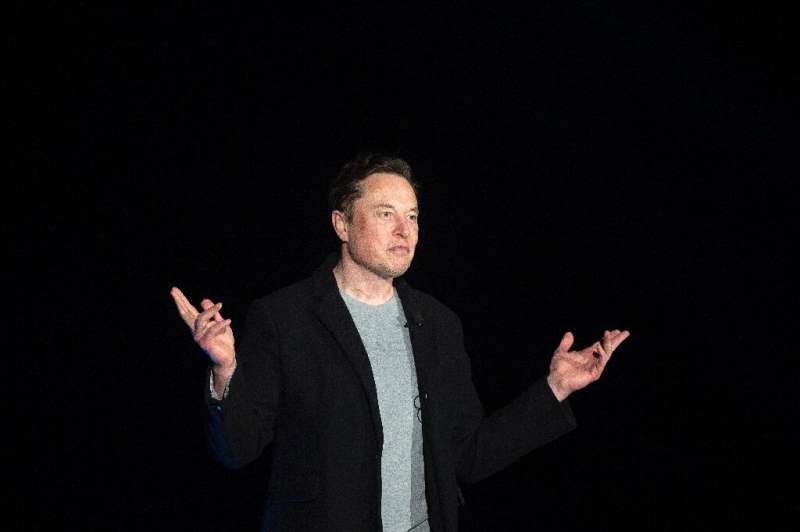This article has been reviewed according to Science X's editorial process and policies. Editors have highlighted the following attributes while ensuring the content's credibility:
fact-checked
reputable news agency
proofread
Musk's AI letter is a 'hot mess' of hype, say critics

A letter signed by Elon Musk and hundreds of experts calling for a pause in the development of artificial intelligence is a "hot mess" of "AI hype" that even misrepresents an academic paper, critics say.
Billionaire Tesla boss Musk and other luminaries wrote that "AI systems with human-competitive intelligence can pose profound risks to society and humanity".
But Timnit Gebru, whose academic paper was cited to support that claim, wrote on Twitter on Thursday that her article actually warns against making such inflated claims about AI.
"They basically say the opposite of what we say and cite our paper," she wrote.
Her co-author Emily Bender said the letter was a "hot mess" and was "just dripping with AI hype".
The risks of AI, she wrote, were never about AI being "too powerful" but rather they were "about concentration of power in the hands of people, about reproducing systems of oppression, about damage to the information ecosystem".
The open letter, published on Wednesday on the website of the Musk-funded Future of Life Institute, called for a six-month pause in development of powerful AI systems.
The signatories, who included academics and tech titans like Apple co-founder Steve Wozniak, argued that the pause should be used to bolster regulation and ensure the systems were safe.
'Silly distraction'
However, just hours after the letter was published, signatory Emad Mostaque, boss of British start-up Stability AI, had backed away from one of its central demands.
"I don't think a six-month pause is the best idea," he wrote on Twitter.
He said, though, that there were "some interesting things" in the letter and it would help spark a debate.
Another signatory, psychology professor Gary Marcus, spent much of the day battling on Twitter with critics including computer science academic Nick Holliman, who accused him of taking part in a "silly distraction".
"I have repeatedly argued... that we must be concerned with how existing systems perpetuate past bias," he wrote after one user suggested the letter was signed by "white men" unconcerned with the current problems caused by algorithms.
Big tech companies like Google, Meta and Microsoft have spent years working on AI systems—previously known as machine learning or big data—to help with translations, search and targeted advertising.
But late last year San Francisco firm OpenAI supercharged the interest in AI when it launched ChatGPT, a bot that can generate screeds of natural language text from a short prompt.
OpenAI earlier this month unveiled GPT-4, a more powerful version of its chatbot, prompting the open letter from Musk and more than 1,000 experts.
© 2023 AFP
















